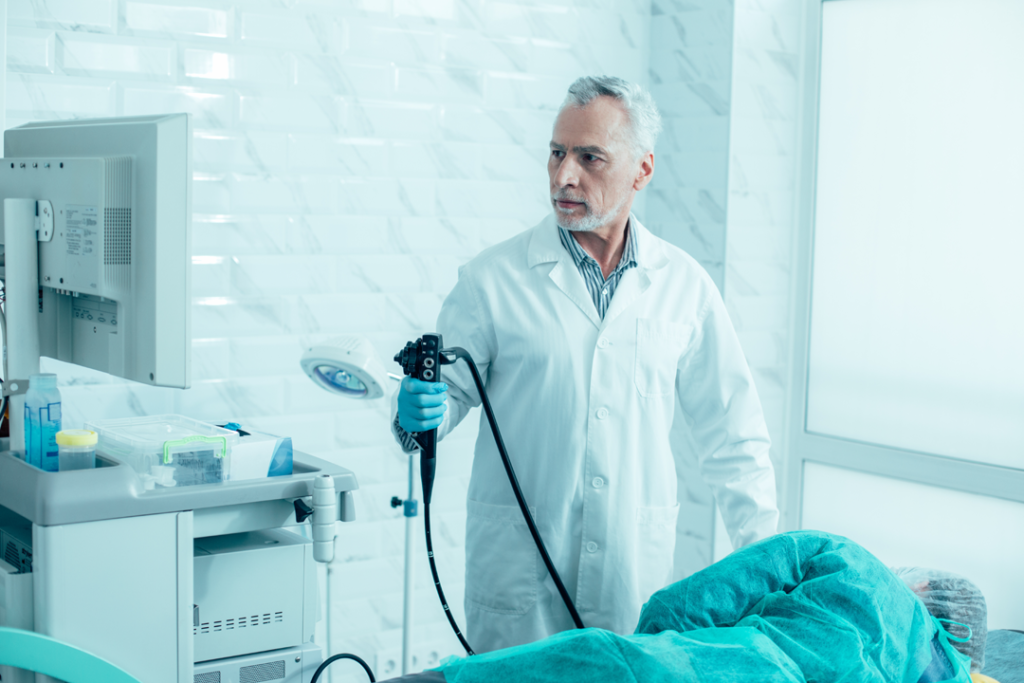Overview of Bronchoscopy
Bronchoscopy is a medical procedure that allows doctors to examine the inside of the lungs, including the bronchi, which are the main pathways to the lungs. It is performed using a bronchoscope, a flexible or rigid tube equipped with a light and camera.
Indications
Bronchoscopy is indicated for various diagnostic and therapeutic purposes, including:
- Diagnosis: Investigating causes of chronic cough, hemoptysis (coughing up blood), or abnormal chest X-rays.
- Biopsy: Collecting tissue samples from the lungs or lymph nodes to diagnose infections, lung diseases, or cancer.
- Foreign Body Removal: Extracting inhaled objects from the airways.
- Treatment: Administering medication directly to the lungs, clearing mucus, or placing stents to open narrowed airways.
Types of Bronchoscopy
There are two main types of bronchoscopy:
- Flexible Bronchoscopy: More commonly used, involves a flexible bronchoscope that can navigate deeper into the lungs and is usually performed under local anesthesia and sedation.
- Rigid Bronchoscopy: Uses a rigid bronchoscope and is typically performed under general anesthesia. It is preferred for certain therapeutic procedures, such as removing large foreign bodies or controlling significant bleeding.
Procedure
During bronchoscopy:
- Preparation: The patient may be given a sedative or general anesthesia. Local anesthesia is applied to the nose and throat.
- Insertion: The bronchoscope is gently inserted through the nose or mouth and advanced into the airways.
- Examination and Intervention: The doctor examines the airways and performs any necessary interventions, such as biopsies or clearing blockages.
- Completion: The bronchoscope is carefully withdrawn, and the patient is monitored until the effects of anesthesia wear off.
Risks and Complications
Bronchoscopy is generally safe but carries some risks, including:
- Bleeding: Especially if a biopsy is taken.
- Infection: Though rare, there’s a small risk of lung infection.
- Breathing Difficulties: Temporary shortness of breath or decreased oxygen levels.
- Reaction to Sedation: Side effects from anesthesia or sedatives.
Recovery
Post-procedure, patients are typically observed for a few hours. They may experience a sore throat, cough, or hoarseness, which usually resolves within a day or two. Patients are advised to avoid eating or drinking until the numbness from local anesthesia subsides.
For the highest quality of affordable bronchoscopy care from the best bronchoscopy treatment doctors in Pitampura, please call +91 8595859044, +91 9716368117, or write to us at sandeep221083@gmail.com
